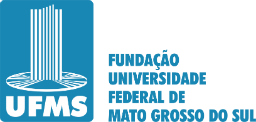Programme overview
The Postgraduate Program in Animal Biology (PPGBA) (CAPES grade 4) at the Federal University of Mato Grosso do Sul began its implementation activities in the first semester of 2011, with the creation of the master’s course, and already has more than 130 graduates. The doctoral course held its first selection process in July 2024. Both courses aim to train masters and doctors in zoology, for the performance of high-level teaching and research activities. The PPGBA currently has 22 professors linked to three research lines: (1) Natural History, (2) Systematics and Evolution, and (3) Experimental and Applied Zoology. Research covers diverse areas such as morphology and comparative evolution, geometric morphometrics, phylogenetic systematics, biogeography, histomorphology, ecotoxicology, parasitology, animal behavior, and wildlife conservation and management.
In the Postgraduate Program in Zoology, we supervise, teach, and conduct research in several interconnected areas: natural history, comparative anatomy, developmental biology, taxonomy, the study of kinship relationships, biogeography and phylogeography, behavioral ecology, and conservation biology.

